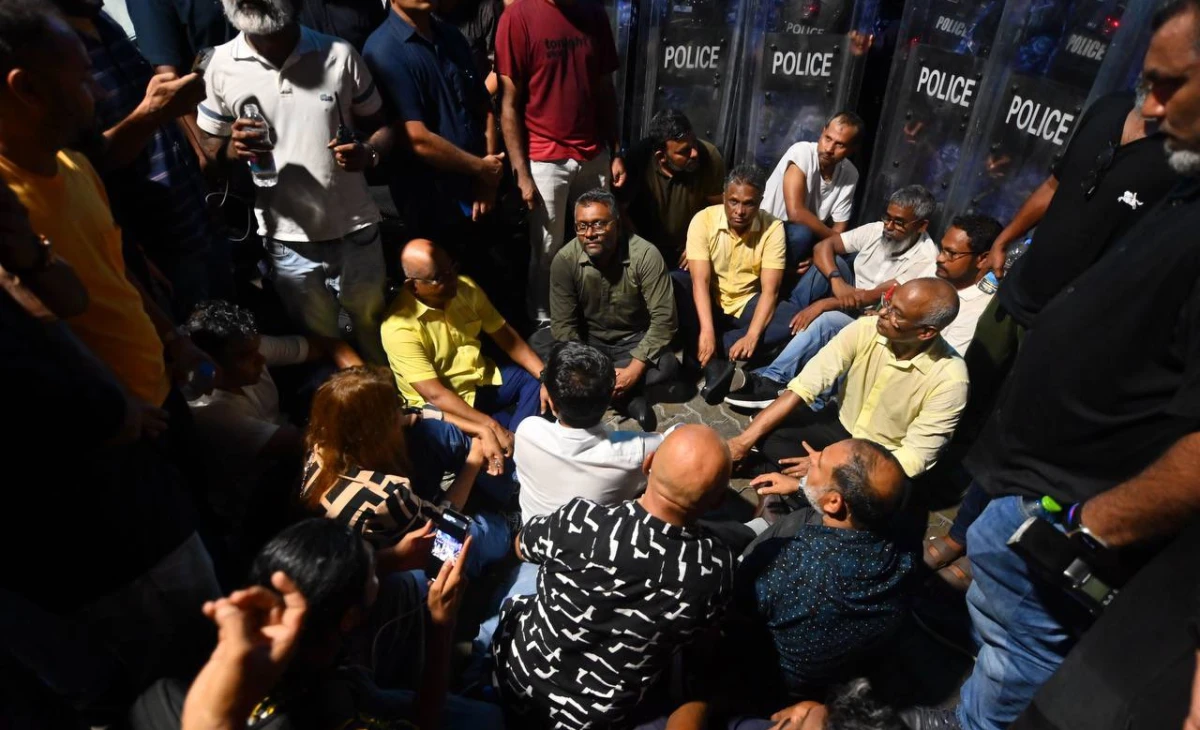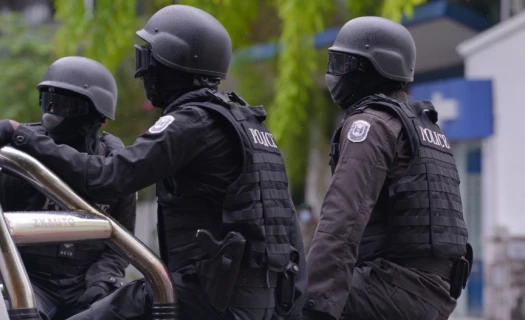Sat, 07 Feb 2026
|DHIVEHI
Photo-op politics backfire on MDP
04 Oct 2025
|

Photo: MDP Secretariat
The Maldivian Democratic Party’s (MDP) protest in Malé last night amounted to little more than a photo-op for its leadership, who rallied supporters onto the streets not to champion the public interest, but to bolster their own political ambitions and campaign agendas.
At the forefront of the demonstration were former president Ibrahim Mohamed Solih, former vice president Faisal Naseem, MDP chairperson Fayyaz Ismail, MDP president and former foreign minister Abdulla Shahid, former defence minister Mariya Didi, and Malé City mayor Adam Azim. Their presence was less about unity than competition, reflecting a leadership that remains consumed by its own hunger for power - to the point of sowing disruption within the party itself.
This infighting was laid bare during the protest, which lacked organisation and clear direction. At times, no one emerged to lead; at others, too many leaders vied for attention, confusing the very crowds they had rallied. The disarray was visible as participants began their own chants while senior MDP figures delivered speeches, urging the public to confront the authorities.
Heavily promoted for weeks as a mass mobilisation expected to draw 10,000 people, the event ultimately peaked at around 1,300 - many of them brought in from the atolls after aggressive advertising and promises of support. Despite the heavy investment of time and resources, the turnout exposed the party’s declining influence.
Instead of offering vision or solutions, the protest disrupted traffic, unsettled residents, and descended into confrontations with police. Protesters ignored pre-approved routes, obstructed law enforcement, and in some cases incited violence against officers. Meanwhile, senior party leaders repeated threats to topple the Government, rhetoric that did little to advance democratic discourse.
Much of the night’s rhetoric centred on corruption allegations against the current Administration - accusations levelled by figures themselves accused of past misappropriation of state funds. This glaring contradiction eroded the credibility of their message, exposing the spectacle as political opportunism rather than a sincere call for accountability.
For ordinary Maldivians, the protest was less a movement than a staged performance. It did not reveal widespread discontent, but rather a faltering campaign dressed up as public resistance. In the end, the clearest outcome for the MDP leadership was a handful of carefully staged photographs - images intended to project strength, but which only underscored the party’s struggle to remain relevant in the nation’s political landscape.








